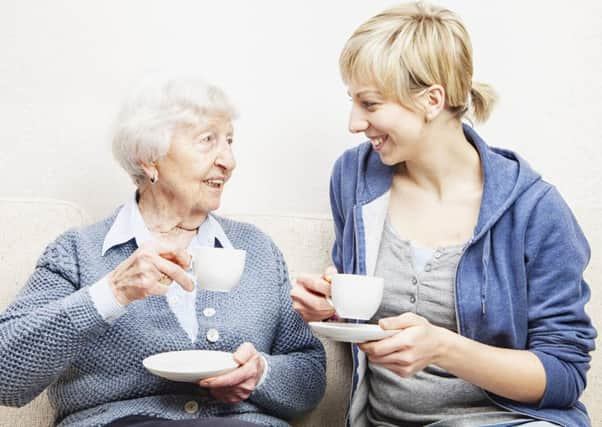WEARSIDE MATTERS '“ A year of success for trailblazing care programme


Health and care professionals across the North East have spent the last 12 months successfully putting in place brand new models of care that are expected to be adopted the length and breadth of the country.
The programmes – known by NHS England as ‘vanguards’ – are currently running in Gateshead, Northumberland and Sunderland, in addition to a region-wide urgent and emergency care model, all aimed at improving patient care, while making efficiencies and helping to ensure the NHS’s long-term sustainability.
Advertisement
Hide AdAdvertisement
Hide AdEach vanguard aims to test out different ways of working, addressing each of the areas’ challenges.
The programme in Sunderland is known as All Together Better. It aims to bring health and social care together, alongside local support groups, to deliver patient-centred care to the most vulnerable and unwell people in the city.
The project has seen the formation of a Recovery at Home service, designed to provide short term care to those with spikes in their health and social care needs, allowing them to remain at home and independent; Community Integrated Teams, with multi-disciplinary health, social and support teams working in partnership to wrap care around people in the comfort of their home; and Enhanced Primary Care, which sees GPs use new, innovative technology to allow them to provide more holistic, effective support to their patients.
Trish Hamilton, Strategic Account Manager of New Care Models for North East, said: “The vanguards programme has provided a unique opportunity for areas of the region to take a step back and re-imagine the way they deliver care and intervention, and it’s hugely encouraging to see that the approach is having such a positive impact.
Advertisement
Hide AdAdvertisement
Hide Ad“Our work will blaze a trail nationally, and the things we have learned along the way will help to inform how other areas adapt their approach.”
The pilots form part of a national New Care Models Programme which is playing a key role in the delivery of the Five Year Forward View – the vision for the future of the NHS.
Samantha Jones, director of the New Care Models Programme, said: “Our programme is about radical redesign to sustain the NHS – that’s locally led by frontline NHS and social care staff in partnership with patients, carers and the local community, including organisations outside the NHS such as councils and voluntary groups.
“One year on from the launch of the programme there is a real sense of moving from the planning stage to delivery.
Advertisement
Hide AdAdvertisement
Hide Ad“The progress we are making wouldn’t have been possible without the fantastic support and hard work and dedication of every partner, organisation and member of staff involved.”
To find out more about the programme, go to www.atbsunderland.org.uk
Listening to the needs of local people
Social workers in Sunderland are putting the human touch into care, to ensure that some of the most vulnerable people in Sunderland are supported, receiving care where and how they want it.
The workers form a vital part of new ‘community integrated teams’, that bring together nurses and GPs, as well as representatives from Age UK Sunderland and Sunderland Carers Centre, to help make sure that people who may previously have been admitted to hospital are supported with care that is wrapped around their needs. The teams are part of the All Together Better Sunderland programme.
Advertisement
Hide AdAdvertisement
Hide AdThere are five teams working across the city and social-workers from the team offer specialist expertise giving a different perspective to the medical or health related view, focused more towards a person’s wellbeing.
They assist people and any family members who help look after them, with social challenges owed to their poor health as well as other circumstances, by putting in place the right intervention to keep them safe and happy in the environment they want to be in.
Their role is to understand the social and emotional needs of the people they work with, and – in partnership with health-focused colleagues – agree a care package that meets these needs, as well as taking into account the medical support they require to enable them to live a fulfilling and independent life.
Wayne Scott, who heads up the Washington team of social workers, said: “Social care is about listening to the wishes and needs of our clients – members of the public who need our help.
Advertisement
Hide AdAdvertisement
Hide Ad“And we do everything we can to make sure that we meet those needs, and, working with our health colleagues, agree a care programme that does all that it needs to in order to improve their health, as well as allowing them to maintain the highest possible quality of life, from a social and emotional point of view.”